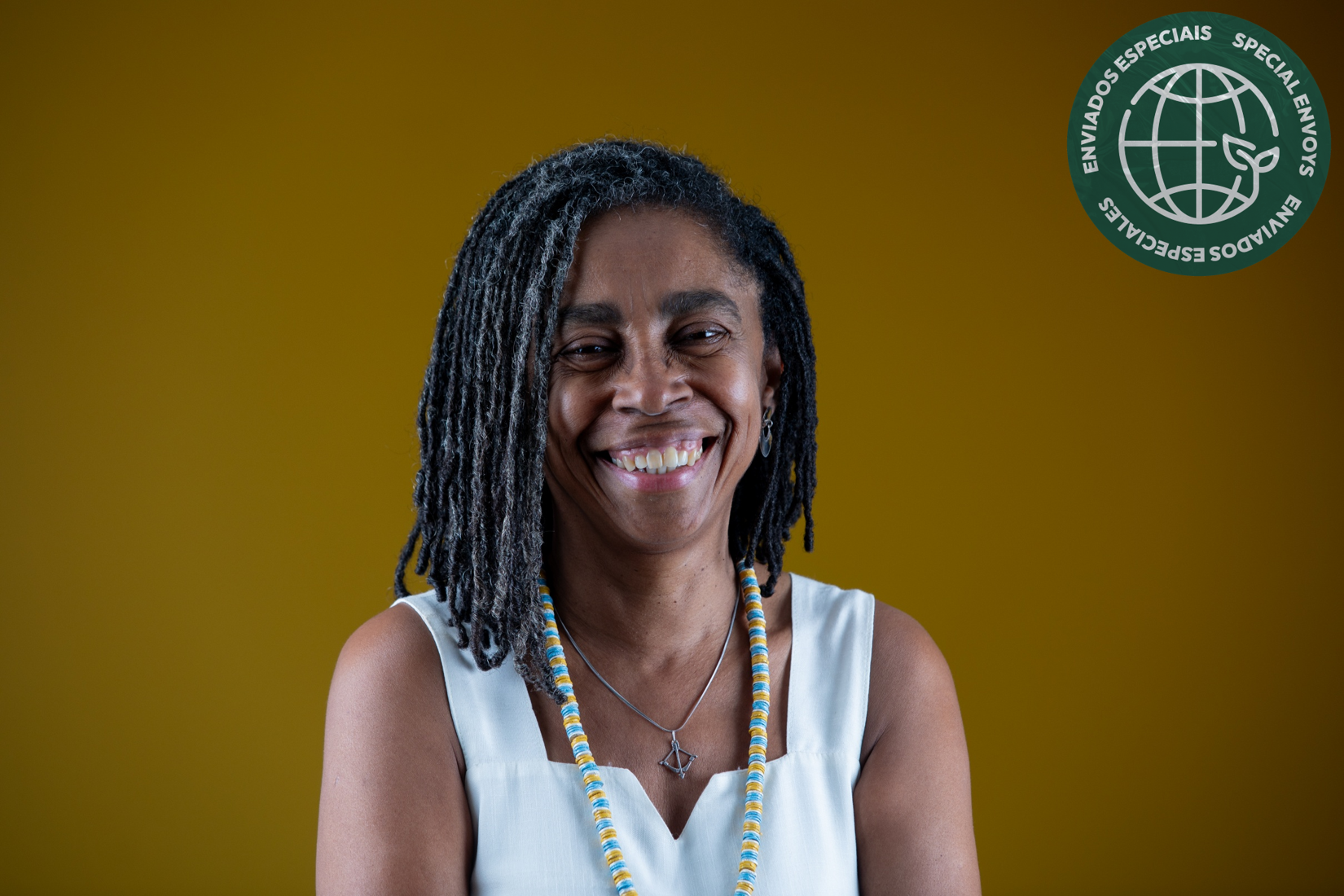“Prioritizing environmental improvement actions ensures basic human rights,” says Jurema Werneck, COP30 Special Envoy
Physician and executive director of Amnesty International Brasil on health and measures for Black and marginalized populations in the face of climate change

By Rafaela Ferreira / COP30
COP30 will be held from November 10–21 in Belém, Pará. There will be 29 Special Envoys to support engagement and dialogue with key sectors and regions that are essential to the conference's success. There are seven international representatives and 22 national representatives in total. They will also serve as direct channels through which demands and requests can be presented to the COP30 Presidency.
In this special series, the Special Envoys discuss their role as intermediaries of information and perspectives from the regions they represent. In the first episode, Jurema Werneck, a physician, Ph.D. in communication, and executive director of Amnesty International Brasil, explains how prioritizing environmental improvements also means guaranteeing human rights.
As the Special Envoy focusing on racial equality and marginalized communities, Ms. Werneck recalls that Black women represent the majority of the population and are directly affected by climate change. “Public policies must be directed in this way, prioritizing environmental improvements; this means ensuring basic human rights for these populations,” she said.
A co-founder of the Criola network, an organization for Black women, and of the Network of Black Women’s Organizations in Brasil, Wernek emphasizes that climate change puts at risk the food security of Brazilian families, most of which are headed by women. “A major effort of the Brazilian government during this period is to guarantee the right to food security. The majority of Black women live in food insecurity and are forced to manage this within their families and communities. Measures must be directed to address this,” she affirms.
Health and Climate Change
The link between health and climate change has never been clearer. With the increase in extreme weather events such as heat waves, floods, and prolonged droughts, health systems around the world are under growing strain. Climate change is associated with the rise and spread of various diseases, both infectious and non-infectious, such as those transmitted by vectors, including dengue, yellow fever, and malaria.
The doctor and researcher explains that heat is a factor in illness and death, as well as triggering and aggravating existing health problems. “When I was working as a doctor in the city of Rio de Janeiro, I carried out some initiatives in the Maré Favela Complex, which is located in an area surrounded by highways—Avenida Brasil and Linha Vermelha—with very little vegetation, occupied almost exclusively by concrete, asphalt, and asbestos tiles. As a result, there was a high rate of respiratory diseases, for example.”
Global Mutirão
Dr. Werneck also highlighted the importance of social participation for COP30. According to her, the mobilization of individuals, groups, collectives, and peoples is important for the event to take place. “The representative authorities need to listen to the populations and peoples.”
She points out that the mutirão is an initiative to bring together civil society organizations, local communities, and various actors to implement tangible climate actions in the territories, going beyond official negotiations.
“After all, we are the ones who deal with these situations daily. When it rains too much or too little, when there are fires, droughts, or dust storms, we are the ones who have to face them, in our homes, on our streets, and at our work,” stresses Dr. Jurema Werneck.
Special Envoys
The COP Presidency selected 29 Special Envoys to support engagement and dialogue with key sectors and regions for the success of the conference. The Envoys, who serve voluntarily and in a personal capacity, were chosen for their relevance and recognition in their respective fields. In total, there are seven international and 22 national envoys.
They represent a crucial communication channel for the flow of information and perspectives from the areas they represent, enabling faster and more effective interactions. They also serve as a direct line to present demands and requests to the COP30 Presidency, acting as key points of contact with the different sectors and regions.
Dr. Werneck notes that one aspect of being a special envoy is helping people better understand what is happening within the conference framework. "Leaders, diplomats, and national representatives often don't know exactly what populations are experiencing, living through, and expecting from them as public agents. So, this is also my expectation—to help ensure they understand,” she said.
